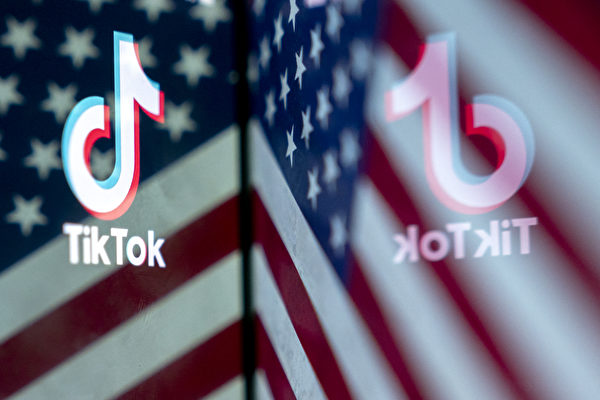After President Biden signed the TikTok “Sell or Ban” act in the United States, TikTok immediately vowed to challenge this new law in court, citing the First Amendment of the U.S. Constitution as their strongest weapon. With national security at stake, Congress has initiated a new battle to defend the legislation.
On April 24th, the U.S. swiftly passed a law targeting TikTok, compelling its Chinese parent company, ByteDance, to sell the platform or face a ban on its operations in the U.S.
However, on the same day Biden signed the act, TikTok issued a statement accusing the new law of being “unconstitutional,” asserting that they “will question it in court.”
TikTok’s CEO, Shou Zi Chew, also released a video vowing to “continue fighting for rights in court,” pledging to stay in the U.S. – “We’re not going anywhere.”
The U.S. Congress foresaw the impending legal storm. Just hours before the Senate voted on the bill, two key legislators took the stage for a 17-minute Q&A session. They outlined national security crises related to TikTok, anticipating challenges that the plaintiffs might present.
The “court preview” by Democratic Senators Maria Cantwell from Washington State and Mark Warner from Virginia highlighted the tension surrounding the TikTok legislation.
The crux of the dispute between TikTok and the U.S. Congress revolves around whether the law violates the First Amendment of the U.S. Constitution, which prohibits the government from passing laws that restrict freedom of speech.
In 1965, the U.S. Supreme Court ruled that the government cannot prohibit foreign propaganda, including propaganda from the Chinese Communist Party. In the case Lamont vs. Postmaster General in 1962, the Supreme Court deemed unconstitutional the Postal Service Act requiring the Post Office to withhold “communist political propaganda” mail unless requested by the recipient, as it imposed an affirmative obligation on the recipient, limiting their rights under the First Amendment.
Hence, while there is ample evidence to suggest TikTok propagates Chinese Communist propaganda, the Supreme Court may not accept this as a valid reason to ban TikTok.
However, scholars point out that if TikTok’s propaganda poses a threat to U.S. national security, it becomes a different matter altogether.
Alan Z. Rozenshtein, Associate Professor of Law at the University of Minnesota, suggests that the government could argue in court that banning TikTok is necessary to protect national security, as China, being a U.S. adversary, may exploit its control over media platforms like TikTok to influence U.S. politics, necessitating Congress to intervene.
For the Chinese Communist Party, TikTok holds extraordinary value in propagating its ideology.
TikTok officially launched in the U.S. in 2018, becoming the most downloaded app in the U.S. and globally in 2020, 2021, and 2022. Currently, approximately 170 million Americans are registered TikTok users, representing half of the U.S. population.
TikTok’s influence extends to what music Americans listen to, movies they watch, opinions they believe, products they use, and celebrities they admire.
Even President Biden’s campaign team joined TikTok in February this year.
On June 20, 2020, during his reelection campaign, Trump fell into a “trap” set by TikTok. His campaign rally in Tulsa, Oklahoma had a sharp decrease in attendance, with only 6200 out of the expected 1 million attendees showing up, attributed to TikTok users registering for tickets but deliberately not attending.
Two years later, during the U.S. midterm elections, TikTok introduced an “Election Center” feature, allowing users to access election information across states, including voter registration, mail-in voting, and finding local polling stations. TikTok collaborated with reputable organizations like the NASS, Ballotpedia, American Deaf Democracy Center, Federal Voting Assistance Program, and Campus Voting Project to attract more voters.
Advertised as connecting users with authoritative information and sources in over 45 languages, the ambition of TikTok’s Election Center stunned the U.S. political arena.
In August of that year, Representatives Jim Banks and Michael Waltz wrote to Jeffrey Wichman, a senior official responsible for foreign political interference in the U.S. intelligence community, stating that TikTok, as a subsidiary of the Chinese company ByteDance with board members affiliated with the Chinese Communist Party, could oversee U.S. political discourse and possess data on potentially millions of voters, providing unprecedented political oversight and election interference tools to China.
The Office of the Director of National Intelligence warned in its annual threat assessment in March that China leveraged the TikTok platform to influence the recent U.S. election, targeting candidates from two parties during the 2022 midterm elections.
The report cautioned that China may try to “influence the 2024 U.S. elections to some extent, as it seeks to sideline critics of the Chinese Communist Party and widen divisions within American society.”
According to a document released by the U.S. State Department in September 2023, China employs various deceptive and coercive means to influence the global information environment, reshaping the global information landscape, leading countries to make decisions placing their economic and security interests below Beijing’s.
Rozenshtein believes that among all arguments in the government’s defense of the TikTok legislation, the “national security threat” is most likely to resonate with the Supreme Court.
Gus Hurwitz, Senior Research Fellow at the University of Pennsylvania, suggests that the legal battle surrounding TikTok may escalate to the Supreme Court. Given the current conservative-leaning and liberal-leaning balance of the Supreme Court, he believes the court is likely to uphold the law.
Hurwitz notes that national security “often acts as a trump card.”

